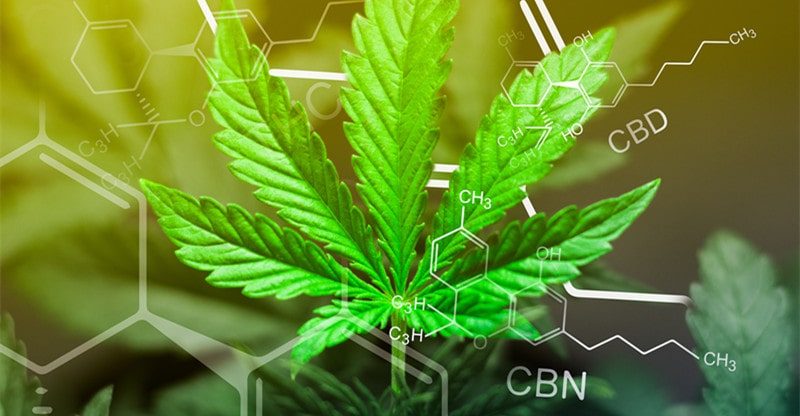CBN vs. CBD: Which Cannabinoid Is Right for You?
Over the past few years, cannabinoids have gained immense popularity, offering a promising avenue for improving health and well-being. Among the standout cannabinoids, we have CBN (Cannabinol) and CBD (Cannabidiol). These compounds, naturally occurring in the cannabis plant, have captured the attention of researchers and wellness enthusiasts alike due to their potential therapeutic properties.
In this informative guide, we’ll navigate the realm of CBN vs. CBD, uncovering their distinctions, and advantages, and helping you figure out which one suits you best.
What are CBD and CBN?
Before we dive into the comparison, it’s essential to understand what CBN and CBD are and how they interact with our bodies.
CBD (Cannabidiol):
CBD, short for Cannabidiol, is one of the most well-known cannabinoids found in the cannabis plant. Unlike its counterpart, THC (Tetrahydrocannabinol), CBD is non-psychoactive, which means it doesn’t produce the “high” associated with marijuana use. CBD interacts with the endocannabinoid system (ECS) in our bodies, promoting balance and homeostasis. It’s been touted for its potential to alleviate anxiety, reduce inflammation, relieve pain, and improve overall well-being.
CBN (Cannabinol):
CBN, or Cannabinol, is another cannabinoid that has gained attention in recent years. CBN is not directly produced by the cannabis plant but is instead a product of the degradation of THC over time. This process occurs as THC is exposed to oxygen and light, transforming into CBN. Unlike CBD and THC, CBN is mildly psychoactive but is still significantly less so than THC.
cannabis plants or those exposed to a lot of air might have higher CBN content. It’s important to note that CBN does not induce the same “high” effect as THC.
Key Difference Between CBD and CBN
Molecular Structure
Although both are derived from the same plant and have similar chemical structures, their atoms are arranged differently. This slight difference in molecular structure is responsible for their unique effects on the body.
The Origin and Extraction
- CBD: This non-psychoactive cannabinoid is derived from both the hemp and marijuana plants. It is often extracted from the plant using various methods like CO2 extraction or solvent-based extraction. Once extracted, it can be found in numerous products, from oils to edibles.
- CBN: CBN is a bit unique. It’s formed as a result of THC (the psychoactive compound in marijuana) degradation. As THC ages and gets exposed to oxygen, it turns into CBN. Hence, older
Effects on the Body
- CBD: Known for its therapeutic properties, CBD interacts with the ECS to potentially provide benefits like pain relief, reduction in anxiety and depression, and alleviation of cancer-related symptoms. CBD doesn’t induce a “high.”
- CBN: Initial research suggests CBN may act as a sedative. Some studies indicate that CBN might promote better sleep, making it of interest to those with insomnia. It also doesn’t produce a “high” but may possess anti-inflammatory and pain-relieving properties.
Psychoactivity
- CBD: As mentioned earlier, CBD is non-psychoactive. It won’t induce the euphoric “high” associated with THC.
- CBN: While CBN is mildly psychoactive, its psychoactivity is much weaker than that of THC. It may cause some drowsiness or a feeling of relaxation but is unlikely to produce significant intoxication.
Potential Benefits
- CBD: CBD has been extensively researched for its potential therapeutic benefits. It is often used to alleviate anxiety, depression, chronic pain, inflammation, epilepsy, and more. Additionally, it is being explored for its potential to address various other health issues.
- CBN: CBN is less studied than CBD, but it is believed to have potential benefits, including as a sleep aid, pain reliever, and appetite stimulant. Some users have reported that CBN helps them fall asleep faster and experience more restful sleep.
Interactions with Other Cannabinoids
- CBD: CBD is known to interact with various other cannabinoids and compounds in the cannabis plant. This interaction, known as the entourage effect, suggests that CBD’s benefits may be enhanced when used alongside other cannabinoids and terpenes.
- CBN: CBN is often found in conjunction with CBD and other cannabinoids in full-spectrum cannabis products. However, its specific interactions and synergistic effects are still being explored.
Availability
CBD is currently more widespread, available in various forms like oils, tinctures, edibles, capsules, and creams. CBN products are gradually emerging, with sleep aids being the most popular.
CBN vs. CBD: Which is Right For You?
The decision between CBD and CBN depends largely on the health goals you’re aiming to achieve.
- For Sleep: If you’re struggling with sleep, CBN might be the better option. The sedative properties can potentially help improve sleep quality.
- For General Wellness: For overall health and wellness, or to address conditions like anxiety, depression, or chronic pain, CBD might be the preferred choice due to its broader range of researched benefits.
- For Specific Medical Conditions: Both cannabinoids show promise for various medical conditions. It’s essential to consult with a healthcare professional when considering these compounds for therapeutic use.
The Synergistic Effect: CBD and CBN Together
While the debate of CBD vs. CBN is valid, some believe in the combined power of these cannabinoids. The ‘entourage effect’ theory suggests that cannabinoids work better together than in isolation. By combining CBD and CBN, one might experience enhanced benefits.
Final Thoughts
The world of cannabinoids is vast and ever-evolving. As research continues, our understanding of compounds like CBD and CBN will grow. Both these cannabinoids offer promising benefits, and the choice between them depends on individual needs.
Whether you lean towards CBD, CBN, or a combination of both, always prioritize quality. Ensure you source products from reputable brands and consult with healthcare professionals before integrating them into your wellness routine. Remember, it’s not just about CBN vs. CBD; it’s about finding what works best for you.



